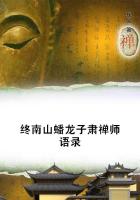The French Reformation The Protest of Spires and the Confession at Augsburg, which marked the triumph of the Reformation in Germany, were followed by years of conflict and darkness. Weakened by divisions among its supporters, and assailed by powerful foes, Protestantism seemed destined to be utterly destroyed.
Thousands sealed their testimony with their blood. Civil war broke out; the Protestant cause was betrayed by one of its leading adherents; the noblest of the reformed princes fell into the hands of the emperor and were dragged as captives from town to town. But in the moment of his apparent triumph, the emperor was smitten with defeat. He saw the prey wrested from his grasp, and he was forced at last to grant toleration to the doctrines which it had been the ambition of his life to destroy. He had staked his kingdom, his treasures, and life itself upon the crushing out of the heresy. Now he saw his armies wasted by battle, his treasuries drained, his many kingdoms threatened by revolt, while everywhere the faith which he had vainly endeavored to suppress, was extending. Charles V had been battling against omnipotent power. God had said, "Let there be light," but the emperor had sought to keep the darkness unbroken. His purposes had failed; and in premature old age, worn out with the long struggle, he abdicated the throne and buried himself in a cloister.
In Switzerland, as in Germany, there came dark days for the Reformation.
While many cantons accepted the reformed faith, others clung with blind persistence to the creed of Rome. Their persecution of those who desired to receive the truth finally gave rise to civil war. Zwingli and many who had united with him in reform fell on the bloody field of Cappel. Oecolampadius, overcome by these terrible disasters, soon after died. Rome was triumphant, and in many places seemed about to recover all that she had lost. But He whose counsels are from everlasting had not forsaken His cause or His people. His hand would bring deliverance for them. In other lands He had raised up laborers to carry forward the reform.
In France, before the name of Luther had been heard as a Reformer, the day had already begun to break. One of the first to catch the light was the aged Lefevre, a man of extensive learning, a professor in the University of Paris, and a sincere and zealous papist. In his researches into ancient literature his attention was directed to the Bible, and he introduced its study among his students.
Lefevre was an enthusiastic adorer of the saints, and he had undertaken to prepare a history of the saints and martyrs as given in the legends of the church. This was a work which involved great labor; but he had already made considerable progress in it, when, thinking that he might obtain useful assistance from the Bible, he began its study with this object. Here indeed he found saints brought to view, but not such as figured in the Roman calendar. A flood of divine light broke in upon his mind. In amazement and disgust he turned away from his self-appointed task and devoted himself to the word of God. The precious truths which he there discovered he soon began to teach.
In 1512, before either Luther or Zwingli had begun the work of reform, Lefevre wrote: "It is God who gives us, by faith, that righteousness which by grace alone justifies to eternal life."--Wylie, b. 13, ch. 1. Dwelling upon the mysteries of redemption, he exclaimed: "Oh, the unspeakable greatness of that exchange,--the Sinless One is condemned, and he who is guilty goes free; the Blessing bears the curse, and the cursed is brought into blessing; the Life dies, and the dead live; the Glory is whelmed in darkness, and he who knew nothing but confusion of face is clothed with glory."-- D'Aubigne, London ed., b. 12, ch. 2.
And while teaching that the glory of salvation belongs solely to God, he also declared that the duty of obedience belongs to man. "If thou art a member of Christ's church," he said, "thou art a member of His body; if thou art of His body, then thou art full of the divine nature. . . . Oh, if men could but enter into the understanding of this privilege, how purely, chastely, and holily would they live, and how contemptible, when compared with the glory within them,-- that glory which the eye of flesh cannot see,--would they deem all the glory of this world."--Ibid., b. 12, ch. 2.
There were some among Lefevre's students who listened eagerly to his words, and who, long after the teacher's voice should be silenced, were to continue to declare the truth. Such was William Farel. The son of pious parents, and educated to accept with implicit faith the teachings of the church, he might, with the apostle Paul, have declared concerning himself: "After the most straitest sect of our religion I lived a Pharisee." Acts 26:5. Adevoted Romanist, he burned with zeal to destroy all who should dare to oppose the church. "I would gnash my teeth like a furious wolf," he afterward said, referring to this period of his life, "when I heard anyone speaking against the pope."--Wylie, b. 13, ch.
2. He had been untiring in his adoration of the saints, in company with Lefevre ****** the round of the churches of Paris, worshipping at the altars, and adorning with gifts the holy shrines. But these observances could not bring peace of soul. Conviction of sin fastened upon him, which all the acts of penance that he practiced failed to banish. As to a voice from heaven he listened to the Reformer's words: "Salvation is of grace." "The Innocent One is condemned, and the criminal is acquitted." "It is the cross of Christ alone that openeth the gates of heaven, and shutteth the gates of hell." --Ibid., b.
13, ch. 2.
Farel joyfully accepted the truth. By a conversion like that of Paul he turned from the bondage of tradition to the liberty of the sons of God.















